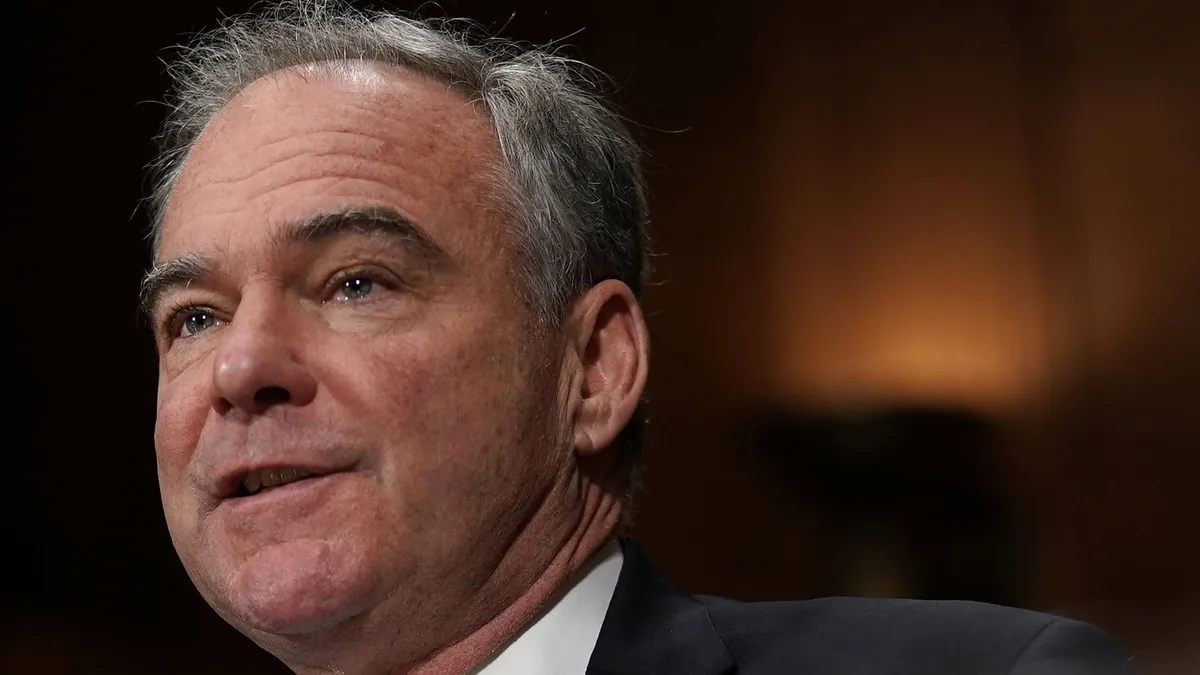Dive Brief:
- A bipartisan group of 20 senators on Tuesday urged U.S. Education Secretary Miguel Cardona to delay the Oct. 1 reporting deadline for the new gainful employment and financial value transparency rules.
- Led by Sens. Tim Kaine, a Democrat from Virginia, and Roger Marshall, a Republican from Kansas, the lawmakers argued that the U.S. Department of Education hasn’t given colleges enough time to collect and report the rules' required information, particularly in light of this year's botched rollout of the new Free Application for Federal Student Aid.
- “During this time, institutions need to devote every available resource to processing financial aid and assisting students in preparing for the upcoming semester, rather than implementing an entirely new reporting framework by October 1,” the lawmakers wrote.
Dive Brief:
The gainful employment regulations require career training programs to prove their graduates earn enough to pay off their federal student loans and that at least half of them earn more than workers who only have high school diplomas. If the programs don’t prove this, they risk losing access to federal financial aid.
Those regulations cover nearly all programs at for-profit colleges, as well as certificate programs at nonprofit institutions. But the financial value transparency regulations will have an even broader impact.
They require all colleges to provide information on all their programs — such as data on student earnings and borrowing costs. These regulations, however, don’t threaten to cut off federal financial aid access.
Instead, the Education Department plans to share the financial value transparency information on a new consumer-facing website, with the aim of helping students make more informed choices about where they attend college. Additionally, applicants for certificate and graduate programs known to leave students with high debt burdens will have to acknowledge seeing that financial information before they can enroll.
The Education Department has already delayed the reporting requirements once, from July 31 to Oct. 1, but lawmakers said Tuesday that even more time is needed.
“It is going to be very difficult, if not impossible, for schools to submit high-quality data by the October 1 deadline given the tight timeline and additional issues financial aid offices are facing,” they wrote.
The Education Department did not immediately provide a statement about the letter on Wednesday.
In making their case, lawmakers pointed out that the new regulations don’t fully take effect until July 1, 2026.
Starting in 2026, under the financial value transparency regulations, the agency will require some students to acknowledge knowing their desired programs have high debt burdens.
And 2026 will be the first year programs covered under the gainful employment regulations could risk losing access to federal financial aid.
Given those timelines, the lawmakers argued that the Education Department still has room to delay the reporting deadline. “Extending the reporting deadline to July 2025 will still give the Department a full year to implement their part of the rule,” they wrote.
The lawmakers also acknowledged that the agency has announced plans to publish the first gainful employment and financial value transparency data in early 2025, but urged officials to rethink this schedule.
“Adhering to this timeline will come at the expense of students across the country, who continue to be impacted by the delays and errors associated with the 2024-25 FAFSA, by diverting time and resources that financial aid offices would otherwise spend supporting students,” they wrote.
Beth Maglione, the interim president and CEO of the National Association of Student Financial Aid Administrators, applauded the senators’ letter Tuesday, noting that the organization has urged the Education Department for months to delay the reporting deadline to help ease the burden on financial aid offices.













